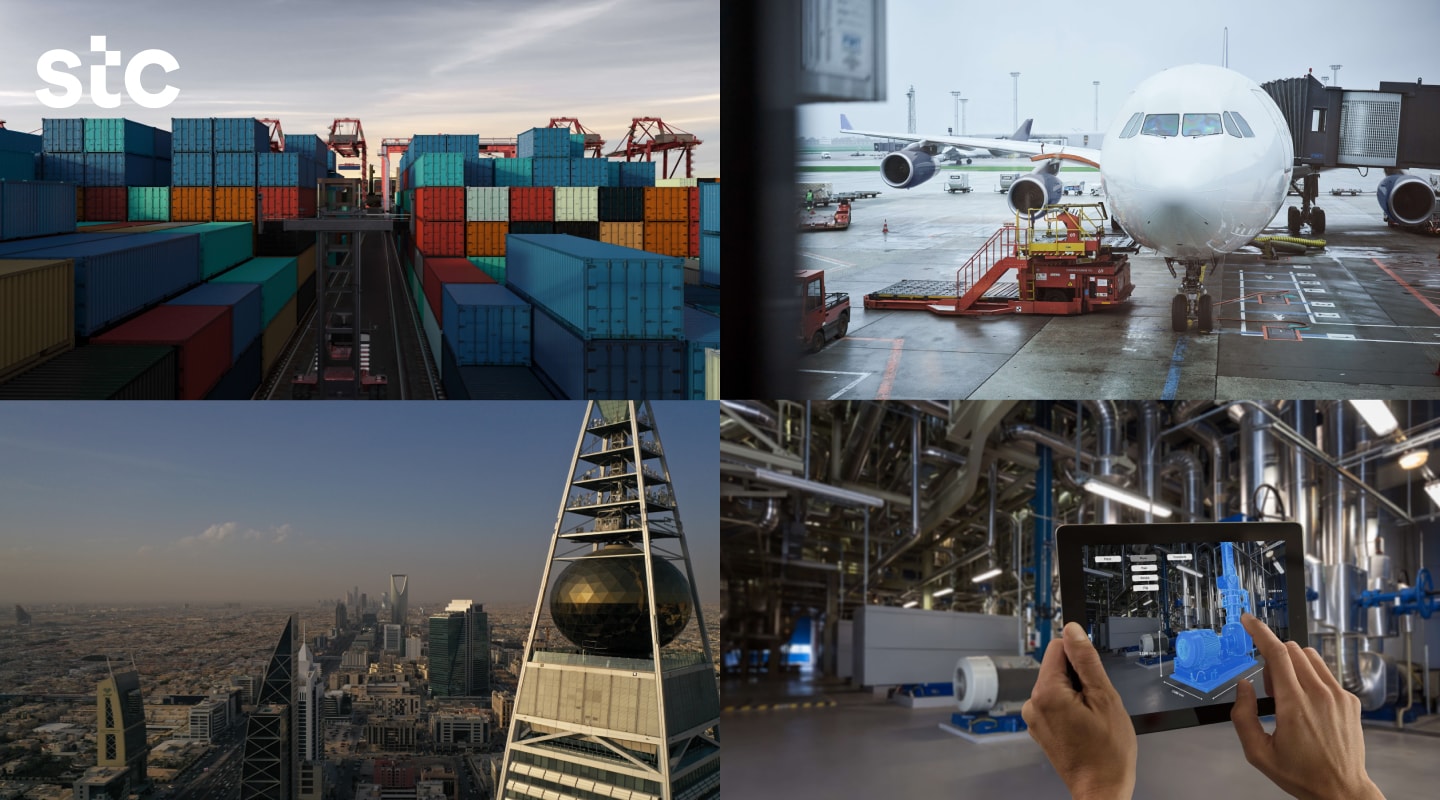Connected Ports

Dr . Sultan bin Saeed
VP Business Development at stc
Ports and logistics are vital for a well-functioning economy and form a foundation for being connected to the rest of the world. Being situated at the convergence of international trade routes connecting three continents, the Kingdom is ideally placed to become a leading transport and logistics hub.
With its goal of diversifying the economy, Saudi Vision 2030 aims to put the Kingdom on the global map, pushing it to be in the top-15 economies of the world. The logistics sector, at the forefront of these advances, is undergoing enhancements with the aim of raising KSA’s global ranking in the Logistics Performance Index from 49 to 25. The opportunities for growth are immense, with the Saudi Arabia Logistics Market expected to generate revenues over SAR 74 billion by 2025.
Simultaneously, the ports of the future are already here, to meet increases in demand and global development – merging logistics and technology. Thriving on automation that is powered by 5G-ready private cellular networks, these ports are improving operations and efficiency, creating new cost reductions, increasing worker safety and incorporating advances in sustainability. Saudi Arabia’s 5G leadership will position it to contribute to a connected world with unlimited possibilities for its people.
stc recognize this massive potential and growth in the ports sector in Saudi Arabia, and the associated need for digital transformation to power the connected ports of the future. Using cutting-edge 5G solutions, use-cases such as remote operation of cranes, AR on The Job Support; broadband connectivity; Critical Communication (Push to Talk service); Security and Surveillance (including automated gate control), Cargo, Vessel and Asset tracking, container damage detection, and container tallying - can and will revolutionize the industry, possibly even sooner than we thought.

Saad Alajlan
Vice President and Head of stc Accounts
Some of the key goals of the Saudi Vision 2030 include raising share of non-oil exports from 16% to 50%, raising KSA's global ranking in the Logistics Performance Index from 49 to 25 ensuring the Kingdom is a regional leader, and pushing KSA in the top-15 economies of the world. This diversification of the economy means growth of services and other commodities, many of which can be containerized, and expansion of ports to support the trade and logistics which will underpin this growth.
Towards the North-West, NEOM is set to establish a top-5 Global Port Logistics Operator which sits along a trade route accounting for 13% of global container trade. In Jeddah, DP World and Red Sea Gateway terminal are expanding and DP World has confirmed infrastructure investment of US$500 million to serve the largest container ships in service to/from Asia. Towards the East, expansion in Dammam ports will be driven by proximity advantage to Riyadh (roughly half of the distance from Red Sea) as well as by growth in larger vessels arriving on direct services to/ from Asia and Arabian Gulf.
stc recognizes this massive growth in the ports sector and the associated need for digital transformation to serve these mission and business critical use-cases call for dedicated private networks which will be made possible increasingly with stc’s cutting-edge 5G solutions.

